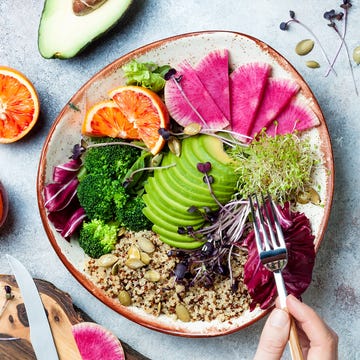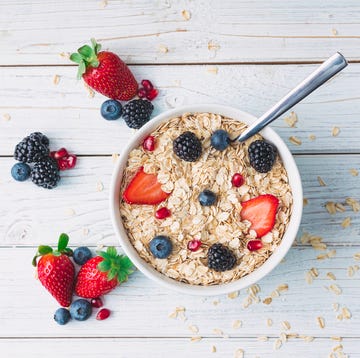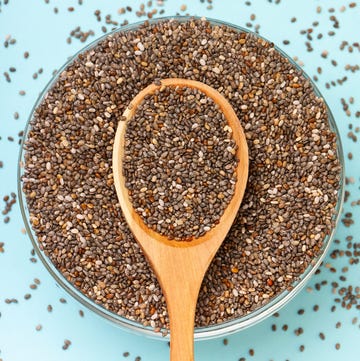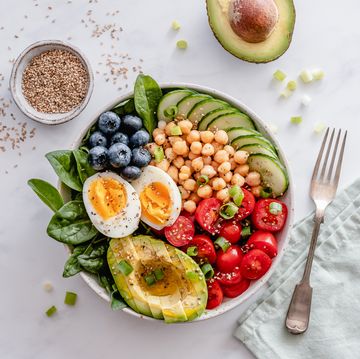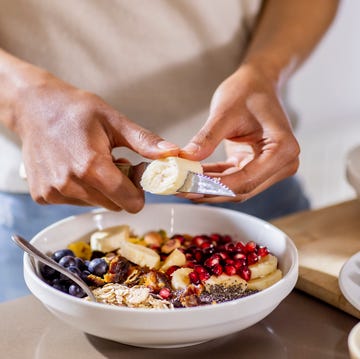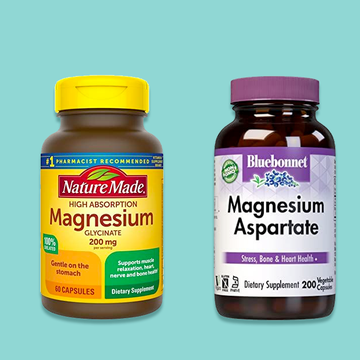1Berries
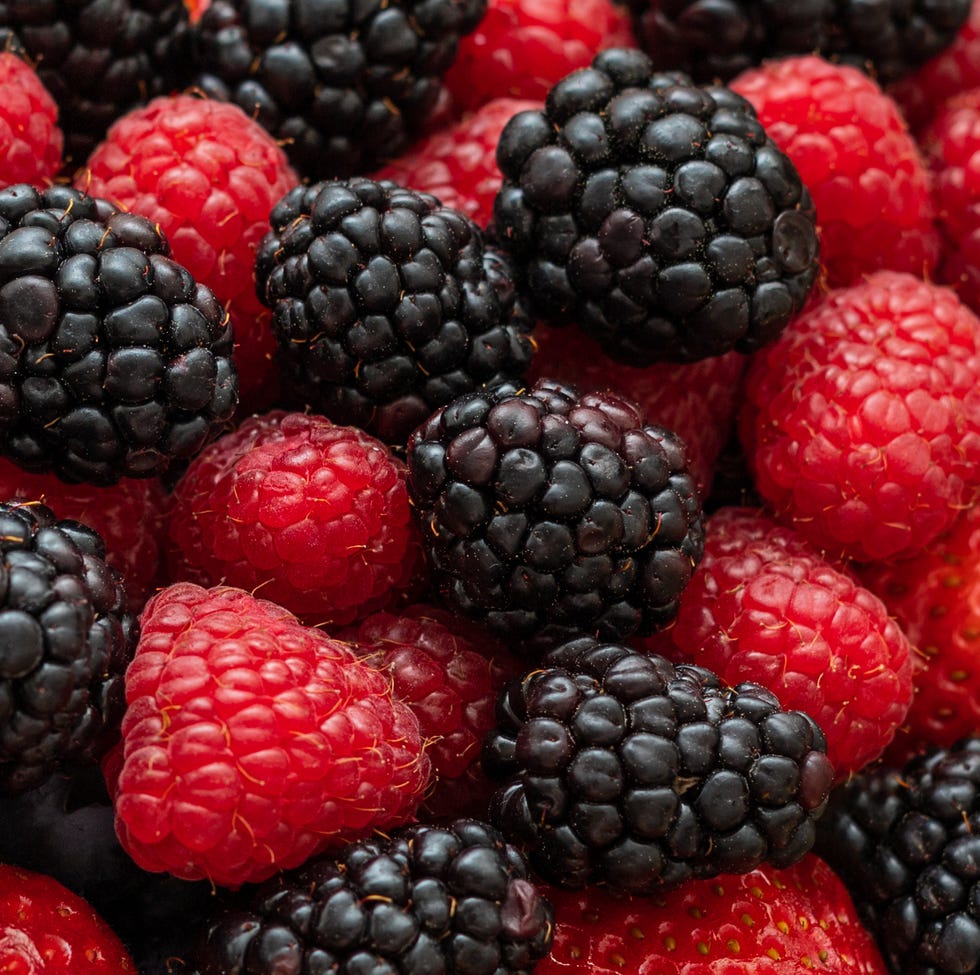 Marina Bagrova
Marina Bagrova- Strawberries are vitamin C powerhouses. Just one cup of halved strawberries packs about 150% of your daily value of vitamin C.
- Blueberries (particularly the wild type, which you can often find in the frozen section of your supermarket) are filled with anthocyanins, flavonoids that have antioxidant properties.
- Blackberries are deliciously sweet, satisfying and nutrient-packed: One cup can provide about half of the vitamin C you need each day, plus they're a good source of both vitamin K and manganese.
- Raspberries are one of the highest-fiber fruits, with one cup containing 8 grams, and they also provide antioxidants. Fiber helps stabilize blood sugar levels and keeps you full (especially when combined with a protein), London says.
Our favorite way to eat any type of berries? Swap them for jam in PB&J to add extra fiber, more antioxidants and less sugar. You can also use their sweetness to create wonderful strawberry desserts, or sprinkle them on top of your morning oatmeal!
RELATED: Scientists Say Eating Strawberries Could Help Keep Your Brain Sharp
2Papaya
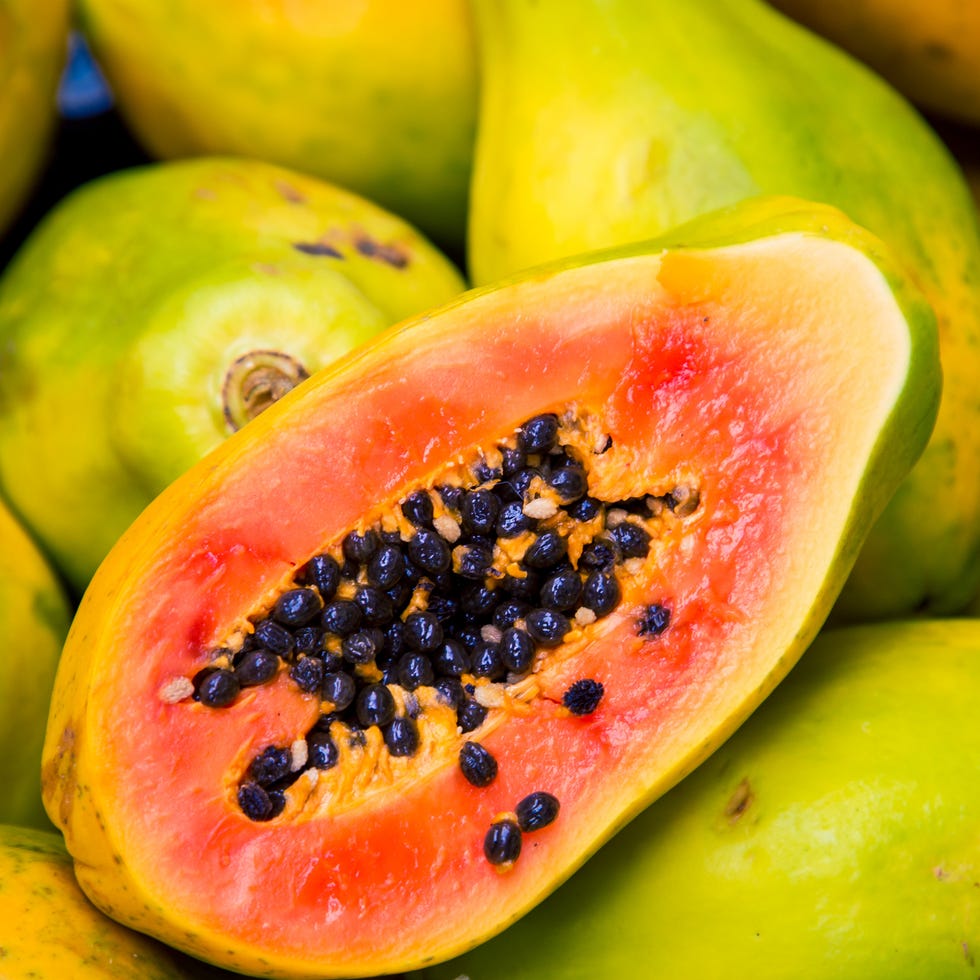 rustyl3599
rustyl3599This tropical fruit boasts an impressive list of nutrients. Papaya is a good source of vitamins A, C and E, which play roles in immunity, skin health and heart health. It also has a lot of fiber, especially if you eat the seeds, which some people may find a bit bitter, but they're totally edible.
Advertisement - Continue Reading Below
3Pineapple
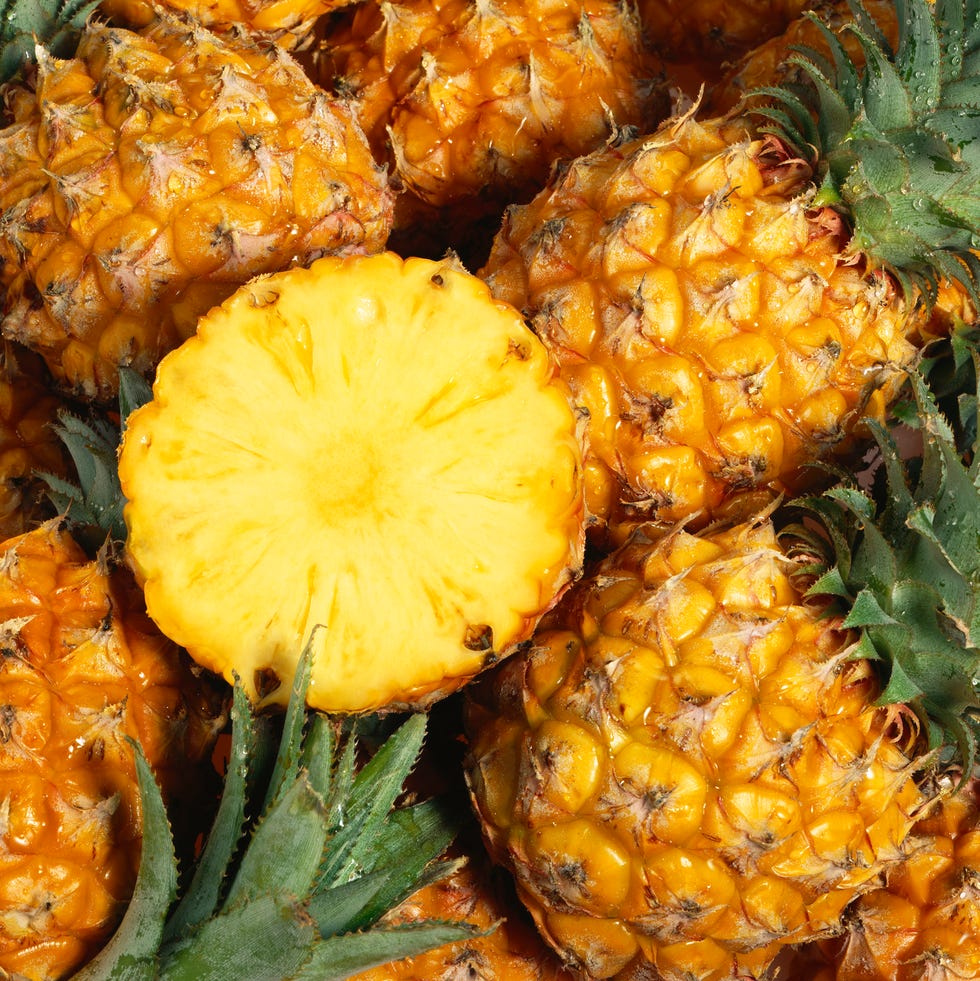 RedHelga
RedHelga"Pineapple has a compound that others don't called bromelain. It has a potent anti-inflammatory effect, and it also functions as a digestive enzyme to break down protein," explains Anderson-Haynes. "Research shows that bromelain may specifically help reduce inflammation in our joints and gastrointestinal tract." Pineapple is also loaded with vitamin C and is an excellent source of manganese, a mineral that helps your brain and nervous system function. It's one of the best fruits to grill, whether it's for a main meal side dish or as the base for a dessert.
4Guava
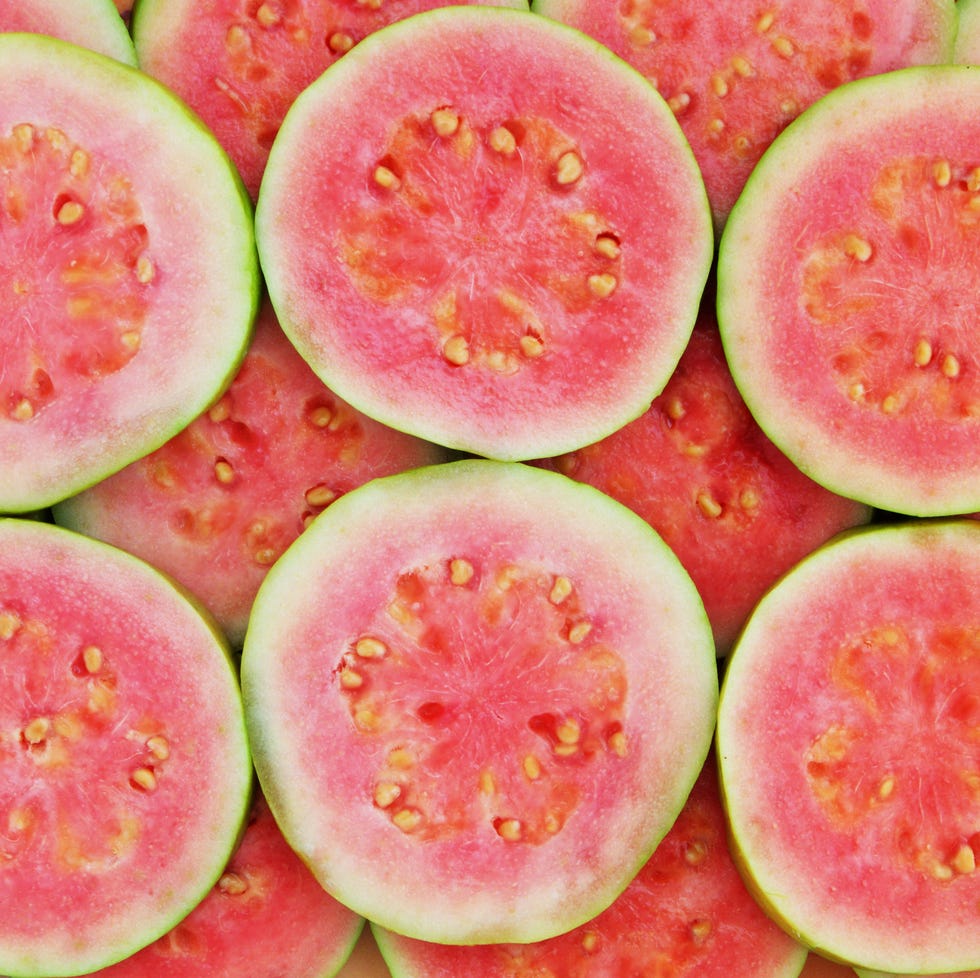 Valerii Evlakhov
Valerii EvlakhovGuavas are an underrated fruit that may give your immune system a boost. They're rich in vitamin C, potassium and fiber, and have a fair amount of folate. With a tropical tang, guavas can be used to make a tasty jam, or turned into a syrup or glaze to use in a host of recipes.
RELATED: 10 High-Protein Fruits, According to Nutritionists
Advertisement - Continue Reading Below
5Plum
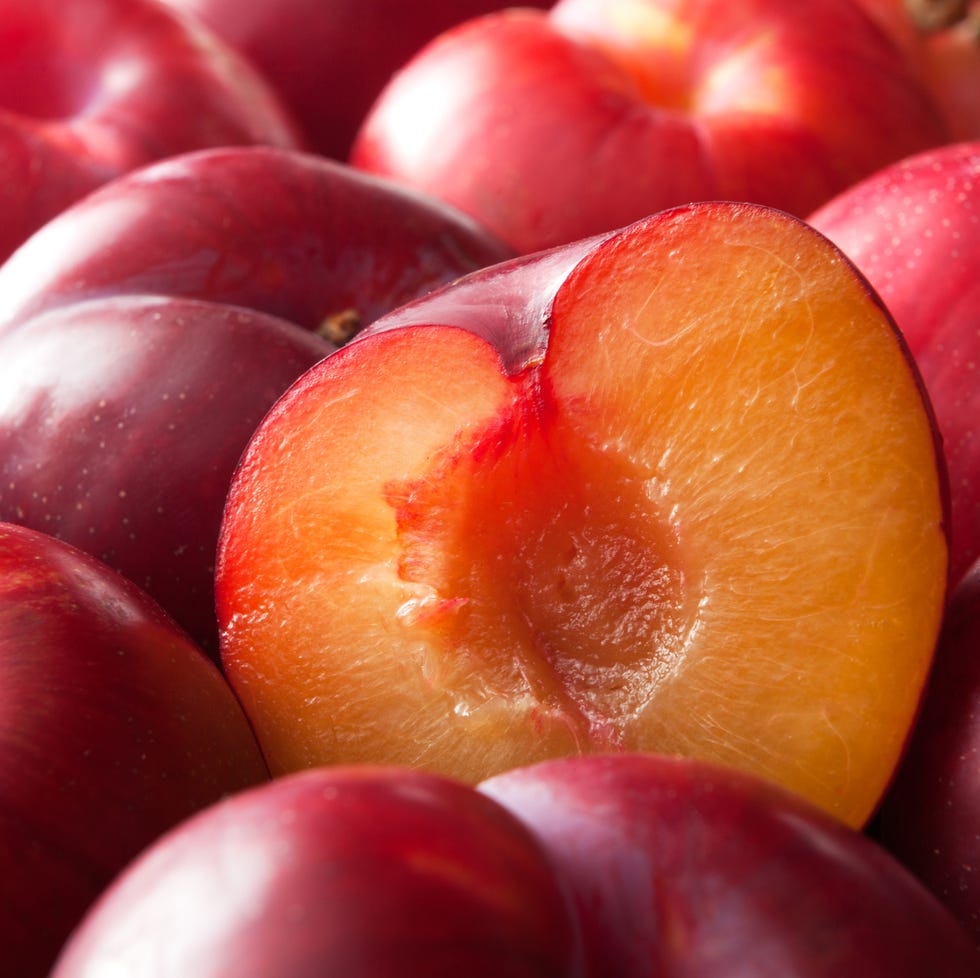 Floortje
FloortjePlums have been shown to have anti-inflammatory benefits that may help boost cognition. Choose prunes (dried plum) for even more calcium and magnesium, which have been linked to decreasing your risk of osteoporosis. Or when you're grilling chicken or a steak, throw on some halved fresh plums — the heat intensifies their sweetness.
6Lime and lemon
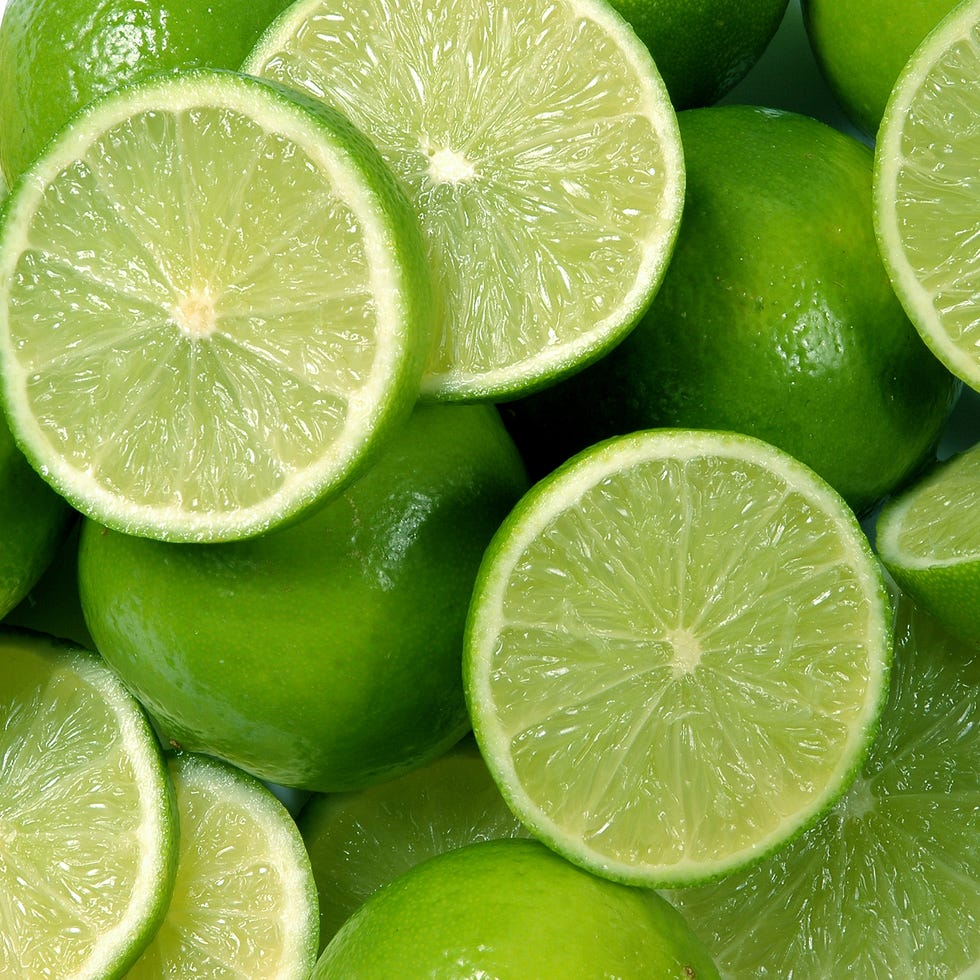 ribeirorocha
ribeirorochaLimes are more than a garnish: They're loaded with vitamin C and are a decent source of calcium and iron. To make the most of any citrus fruit, keep a well-made zester on hand because the peel you're zesting will deliver extra nutrients.
Meanwhile, lemons are high in vitamin C, folate, potassium and flavonoids. Flavonoids may help reduce your risk of cognitive decline by enhancing circulation and helping to protect brain cells from damage, says London.
Advertisement - Continue Reading Below
7Apricot
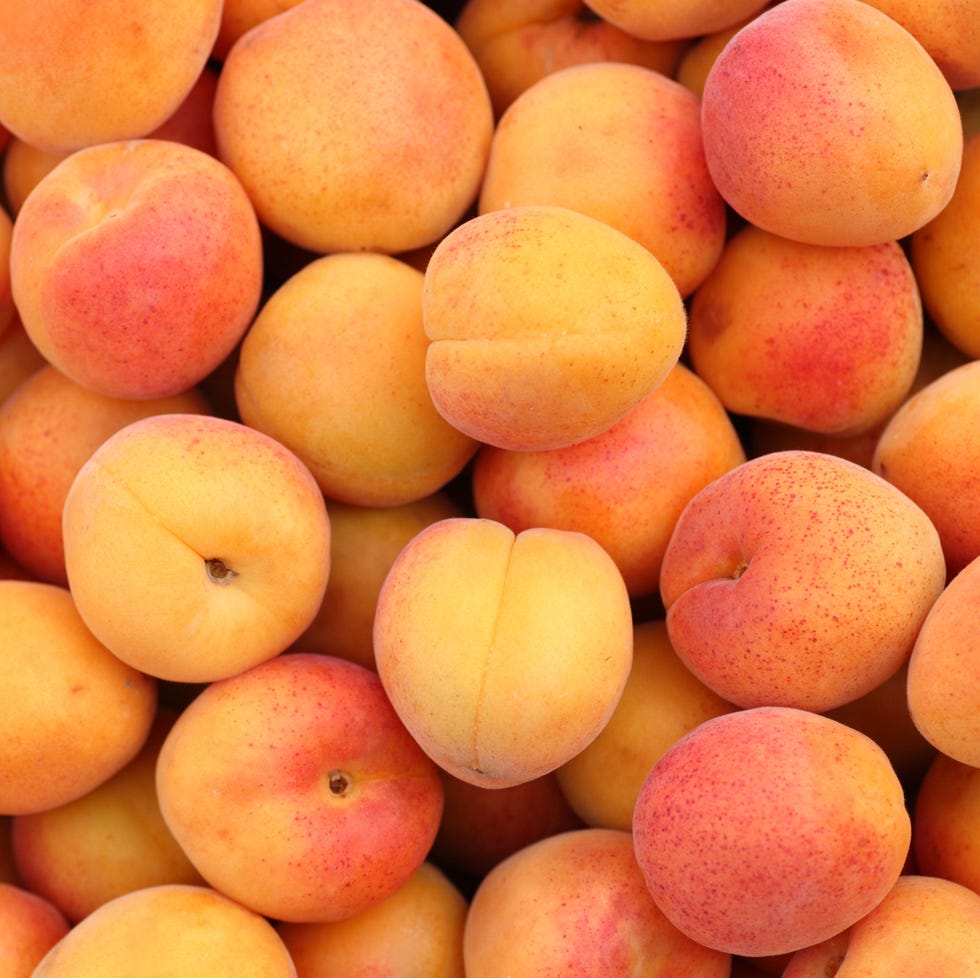 Professor25
Professor25Dried apricot is pretty common, but if you see the fresh kind at your supermarket or farmers market, grab some! Apricots are a good source of several nutrients involved in vision health, such as lutein, vitamin E and beta-carotene, a plant compound that our body converts to vitamin A.
RELATED: 10 Fruits That Are Good to Eat If You Have Diabetes
8Mango
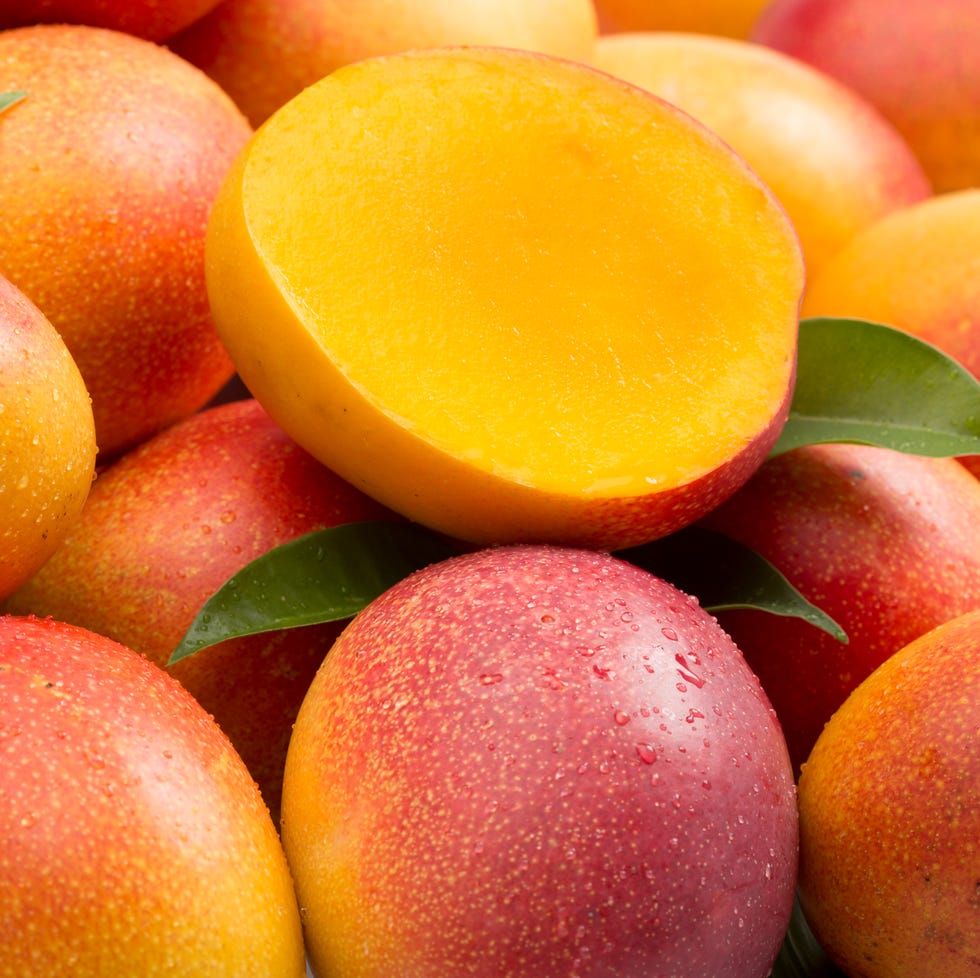 ALEAIMAGE//Getty Images
ALEAIMAGE//Getty ImagesMunch on mango for a summery, delicious tropical treat filled with vitamin C, potassium- and beta-carotene. The nutritionists we spoke to recommend making a big batch of mango-filled skewers and loading up the fridge or freezer, so they’re always on hand when you need a nosh. Diced mango is wonderful in salsa, on salads or frozen and thrown into smoothie recipes.
Advertisement - Continue Reading Below
9Watermelon
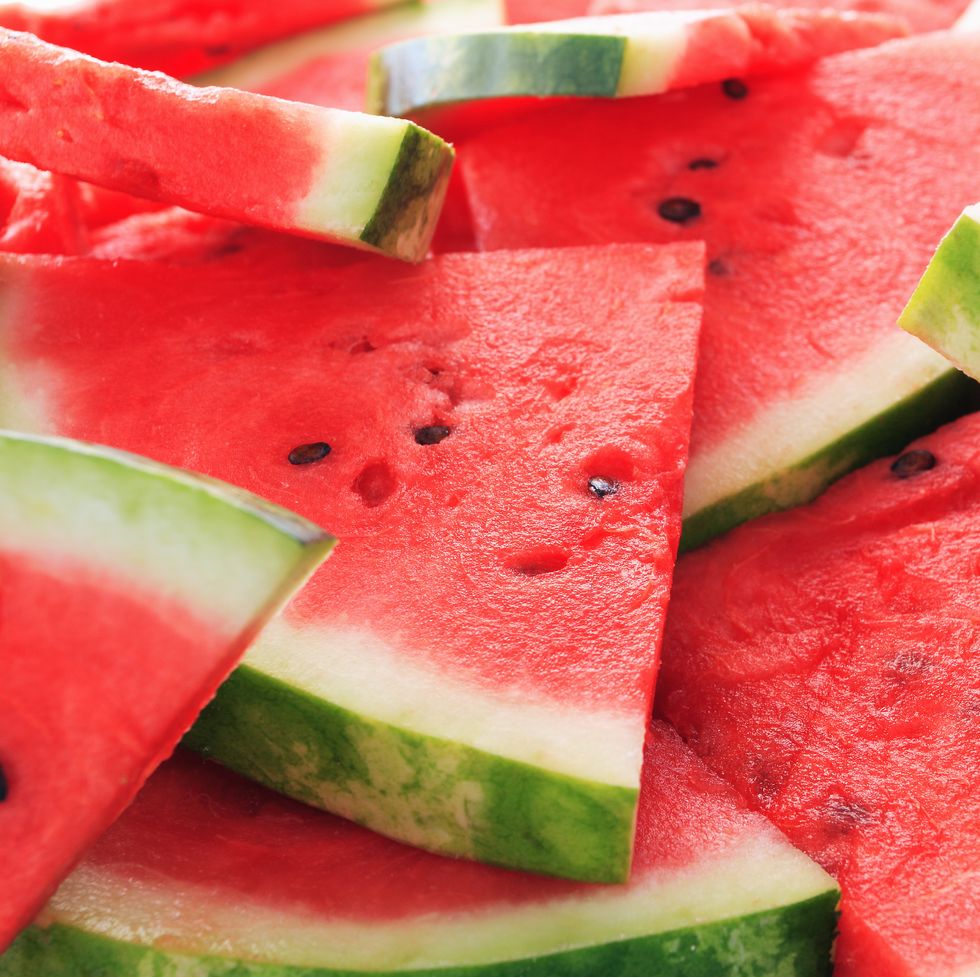 Vitalina//Getty Images
Vitalina//Getty ImagesWatermelon has so many health benefits, starting with hydration since it's 92% water. What makes watermelon an extra great hydration helper is that it's also a source of potassium and magnesium, two minerals that function as electrolytes to help balance fluid levels and offset excess sodium in your diet. And don't forget about other melons like cantaloupe and honeydew, which are also bursting with H20, electrolytes and a good amount of vitamin C.
10Pear
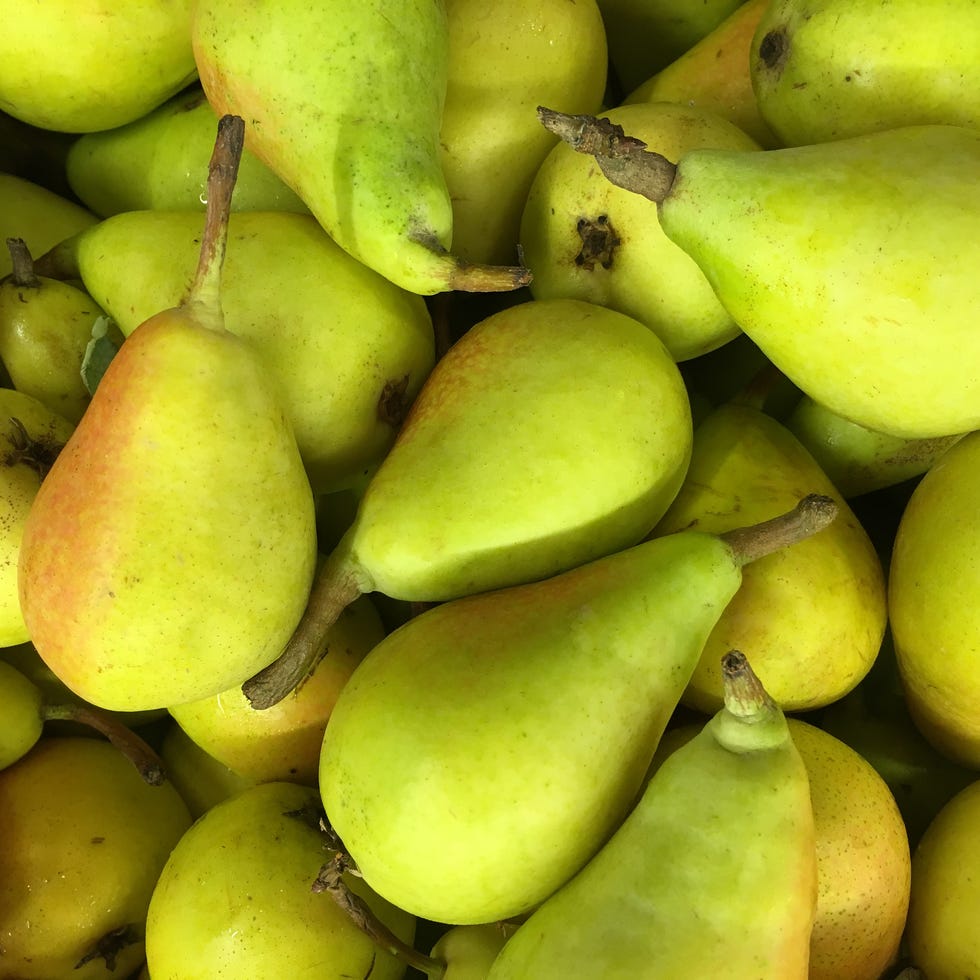 Ivan//Getty Images
Ivan//Getty ImagesDon't ignore the apple's tree fruit relative, the pear. Besides vitamin C and fiber (more than 20% of your daily value), a single juicy pear will also help keep you hydrated, says London. Pears are another fruit that holds up well to grilling or savory pairings, so think beyond breakfast and dessert.
Advertisement - Continue Reading Below
11Apple
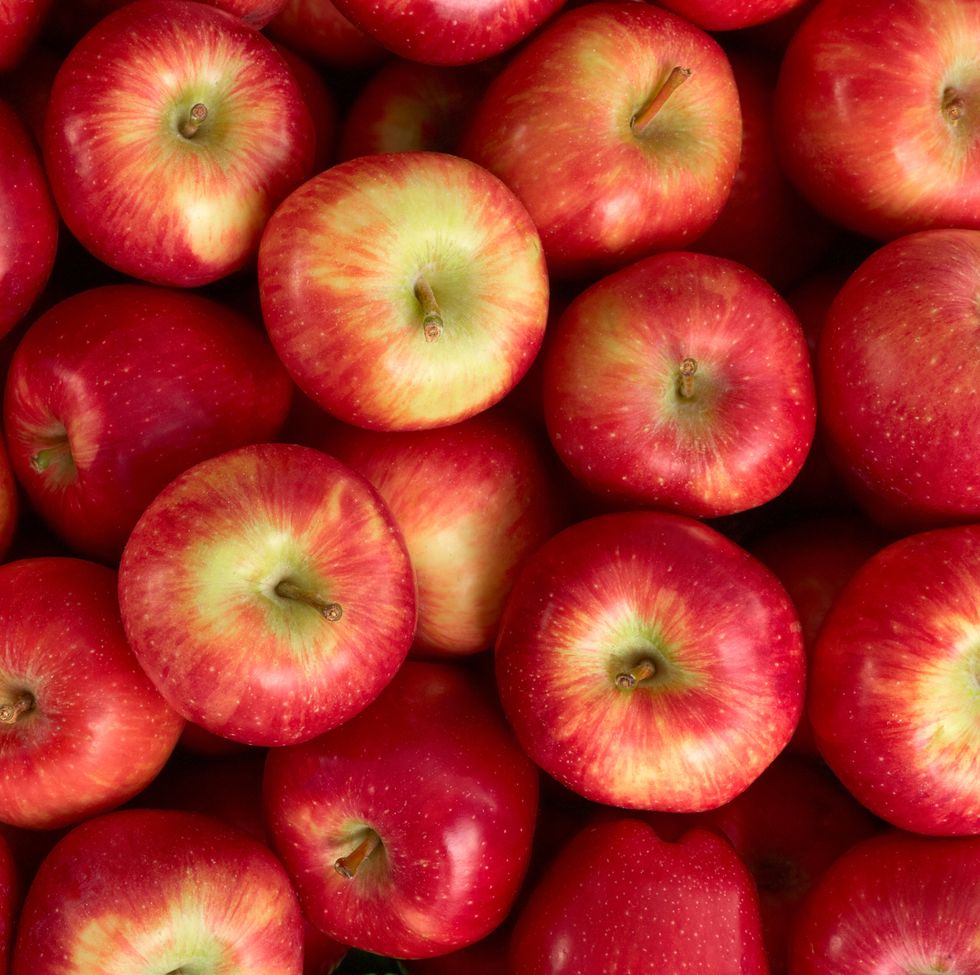 hdagli//Getty Images
hdagli//Getty ImagesAn apple a day may in fact keep your cardiologist away. Evidence has shown that frequent apple consumption may reduce total cholesterol, which can help reduce your risk of heart disease. That’s thanks to antioxidant compounds found in apple skins that help to promote healthy cellular function and proper blood flow. Plus, apples are super versatile. Eat them with yogurt or peanut butter, nuts or raisins or even on a salad or sandwich.
12Banana
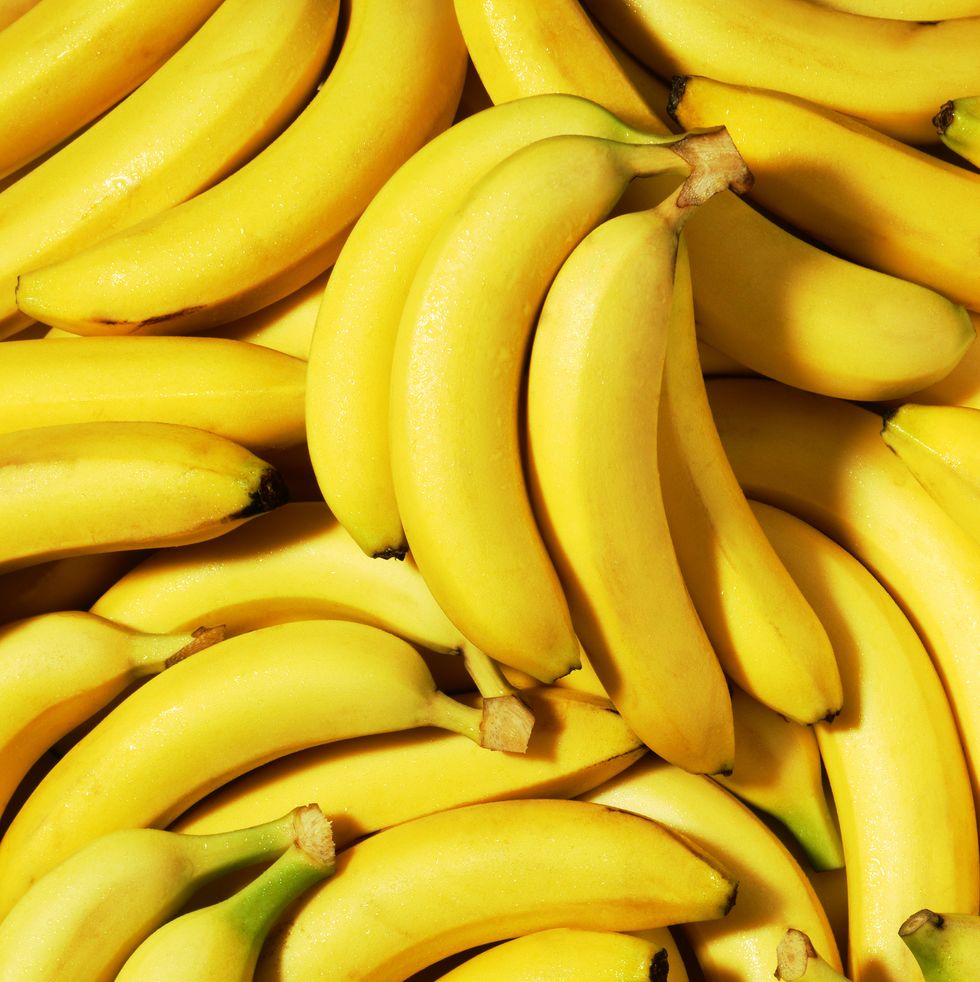 RedHelga//Getty Images
RedHelga//Getty ImagesBananas are an easy grab-and-go snack with prebiotic fiber, which is necessary for good gut health. Bananas also contain potassium, which supports heart health. For an extra heart-healthy boost, slice bananas on top of morning oats with a tablespoon of chia seeds and walnuts — it's a hearty, energy-packed breakfast loaded with fiber, vitamin B6, potassium, magnesium, vitamin C and manganese.
Advertisement - Continue Reading Below
13Pomegranate
 SzB//Getty Images
SzB//Getty ImagesOne cup of these petite treats packs up to 7 grams of filling fiber and 10% of the potassium you should get per day. They're also a decent source of both vitamin C and vitamin K. Use them in savory entrées or sprinkle into salads for a hint of sweetness. The arils (or seeds) have a bit of a crunch, making them a nice addition to yogurt as well.
RELATED: 10 Top Pomegranates Health Benefits, According to Registered Dietitians
14Orange
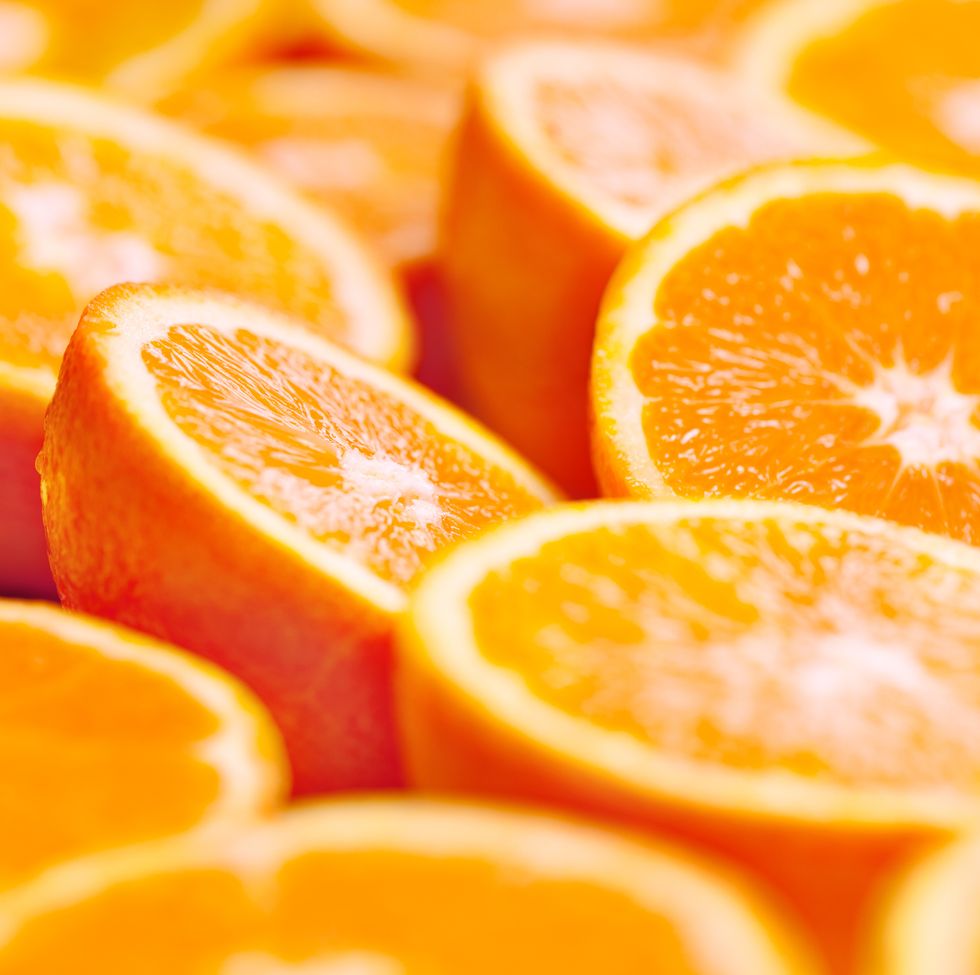 Dimitris66//Getty Images
Dimitris66//Getty Images Advertisement - Continue Reading Below
15Cherry
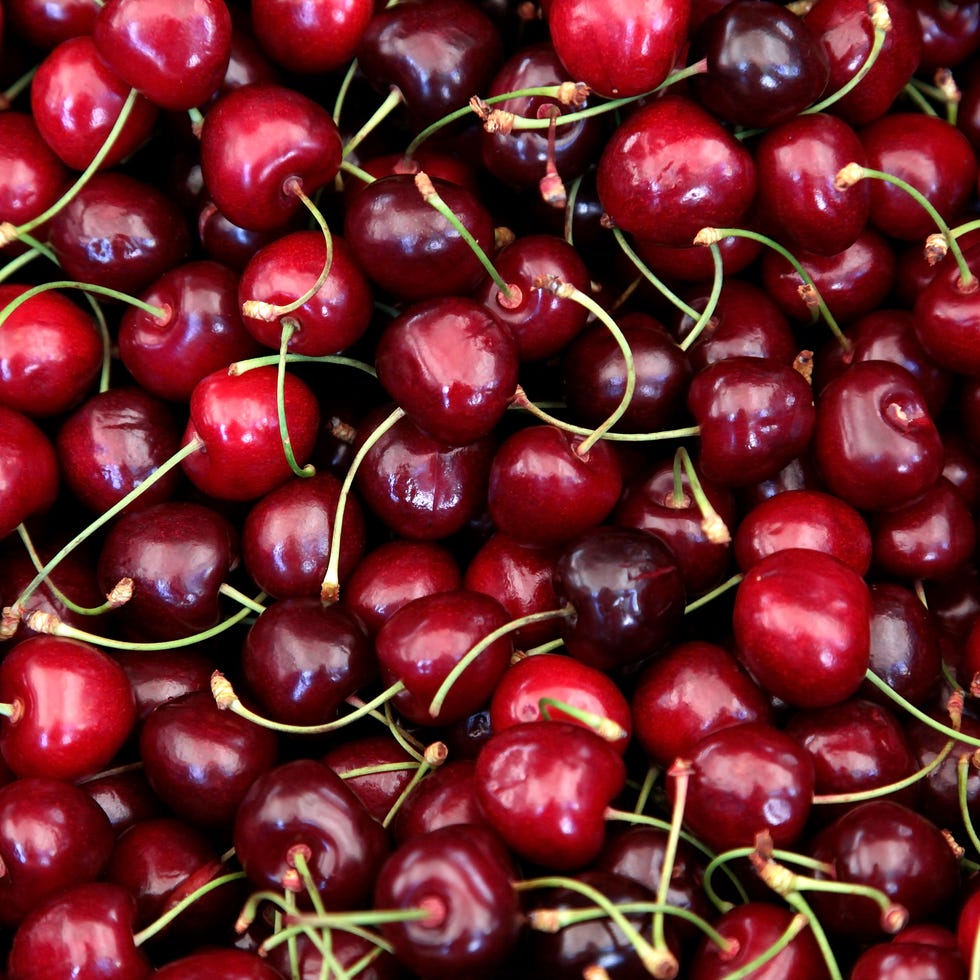 imagestock//Getty Images
imagestock//Getty ImagesFeeling stressed? Grab a handful of cherries. In addition to their multitude of antioxidant benefits, these little stone fruits contain quercetin, a type of antioxidant linked to promoting feelings of calmness, London says.
Keep an eye out for acerola cherries in particular. Native to countries in the Western hemisphere such as Barbados and the West Indies, "acerola cherries are one of the foods highest in vitamin C," says Sue-Ellen Anderson-Haynes, M.S., R.D.N., founder of 360Girls&Women; they also deliver an array of other phytochemicals. Vitamin C is an essential nutrient that functions as an antioxidant to "support immunity and help with collagen synthesis for healthy skin and joints," adds Anderson-Haynes.
16Kiwi
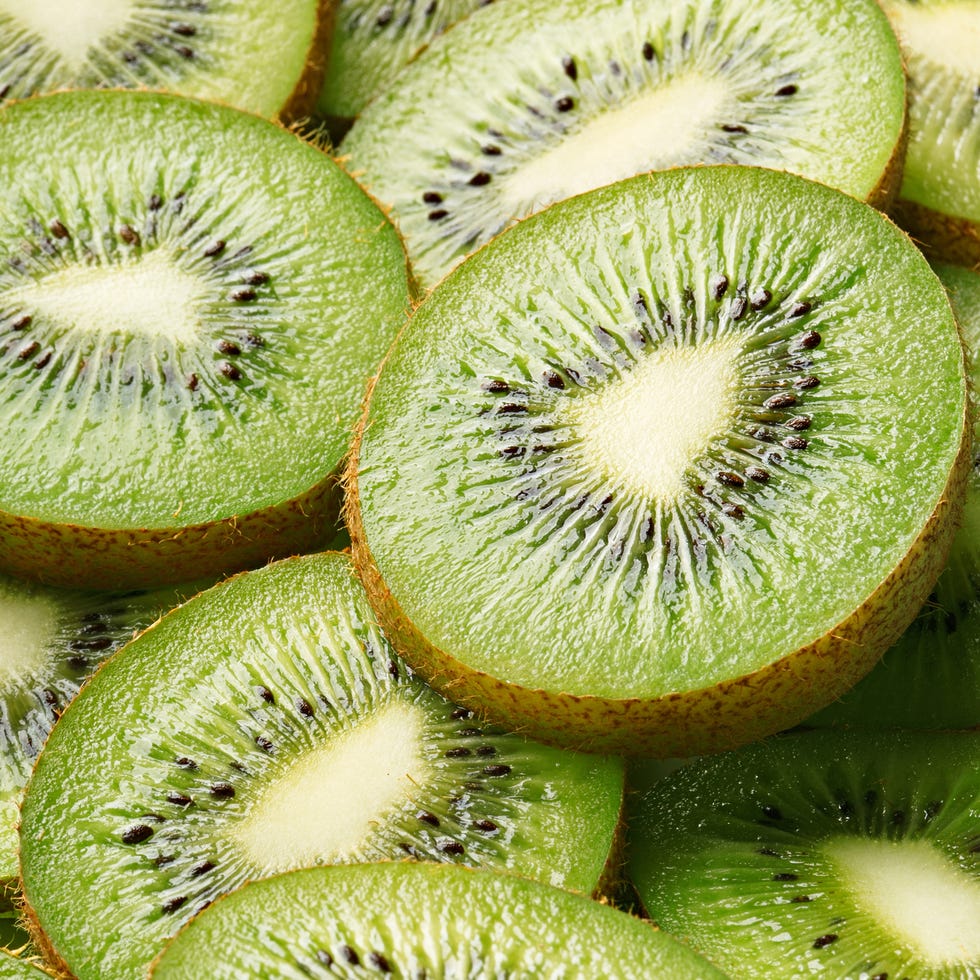 Vesna Jovanovic / EyeEm//Getty Images
Vesna Jovanovic / EyeEm//Getty ImagesIn addition to the vitamin C, potassium and antioxidants you’ll get from kiwi, the combination of folate, magnesium and B vitamins also found in this fruit may help you chill out. And some research suggests eating kiwi as a pre-bedtime snack may lead to better sleep. Mix some into a slaw, or slice up for a cooling side dish.
Advertisement - Continue Reading Below
17Grapefruit
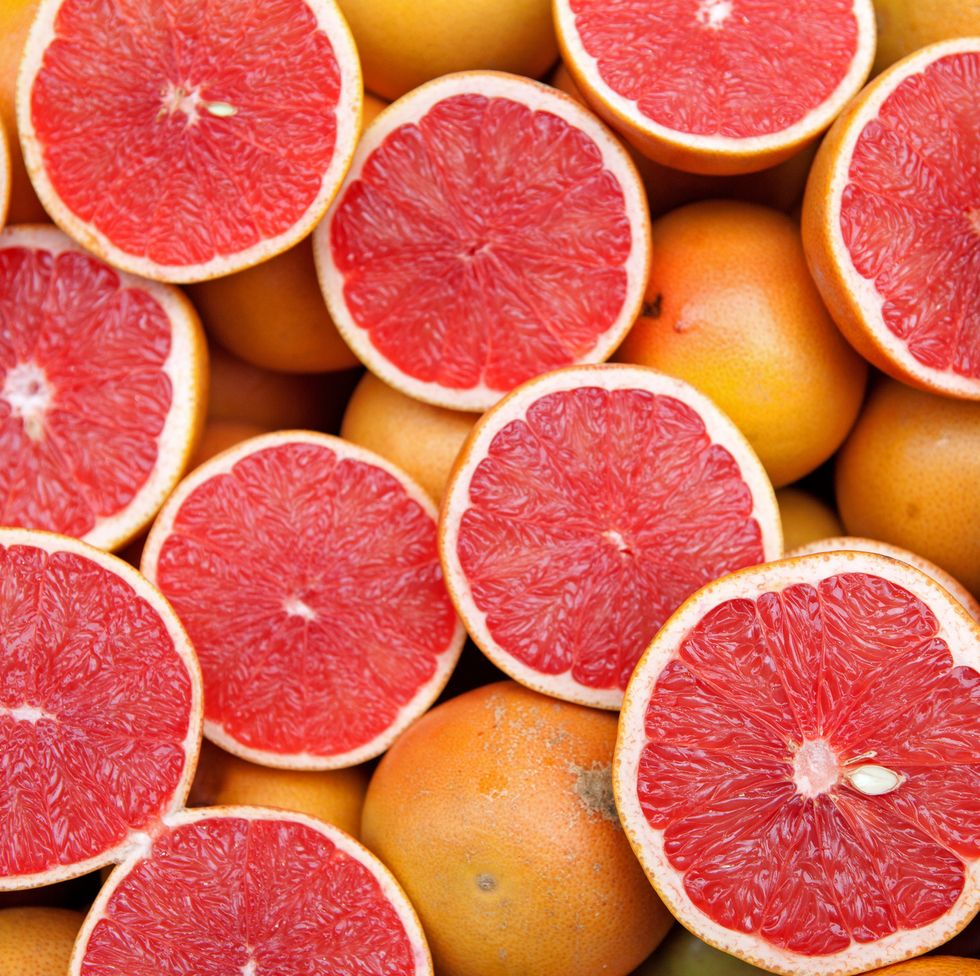 huseyintuncer//Getty Images
huseyintuncer//Getty Images 18Grape
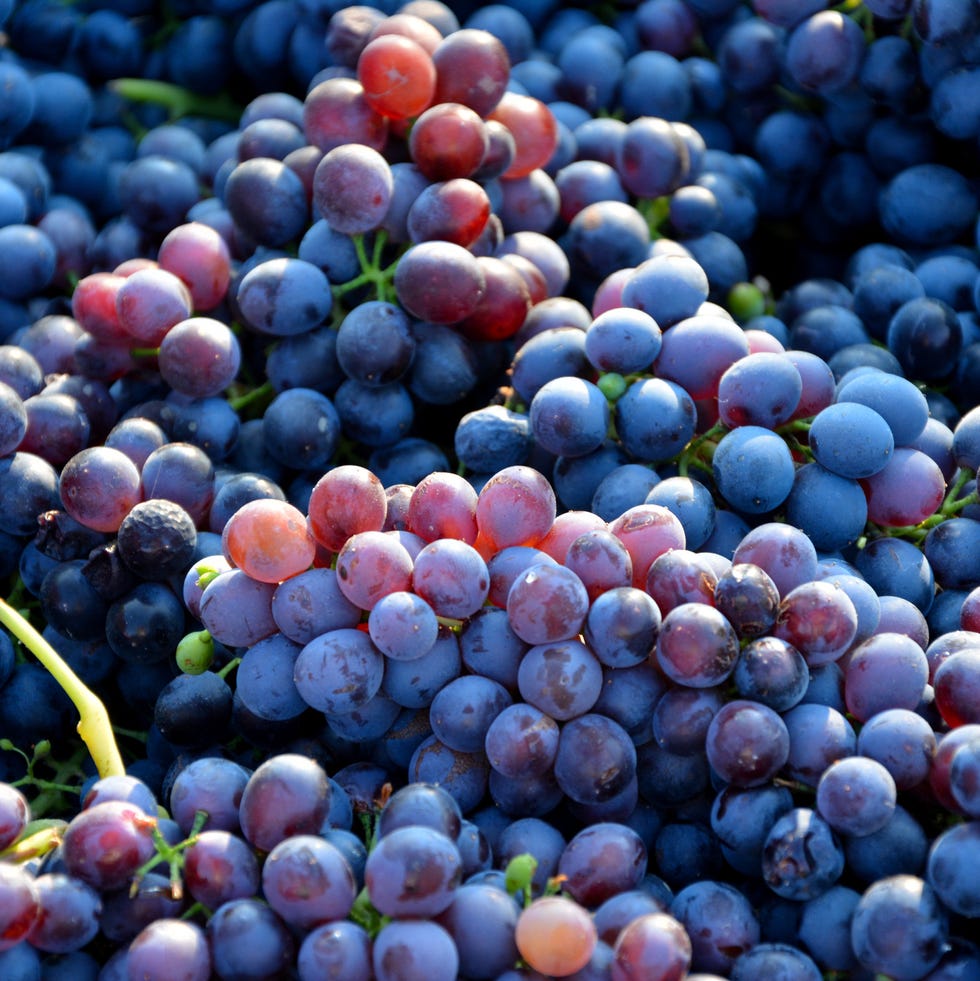 Michail Lazaridis / EyeEm//Getty Images
Michail Lazaridis / EyeEm//Getty ImagesGrapes are a natural grab-and-go snack. Their small size makes them portable, but they're also a healthy choice. Grapes contain compounds with antioxidant properties, which may help reduce cellular damage, says London. Frozen grapes are a wonderful, hydrating summer treat, but also consider roasting grapes along with veggies on a sheet pan!
Advertisement - Continue Reading Below
19Avocado
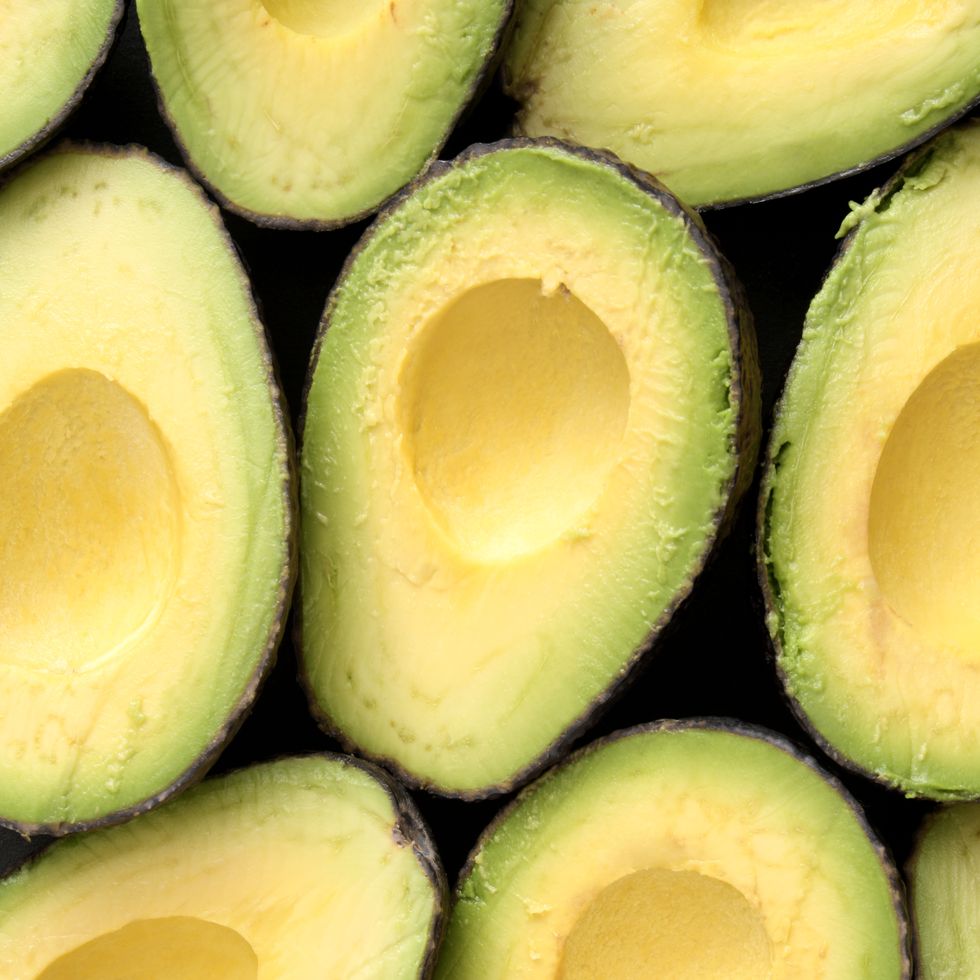 FotografiaBasica//Getty Images
FotografiaBasica//Getty Images 
Stefani (she/her) is a registered dietitian, a NASM-certified personal trainer and the director of the Good Housekeeping Institute Nutrition Lab, where she handles all nutrition-related content, testing and evaluation. She holds a bachelor’s degree in nutritional sciences from Pennsylvania State University and a master’s degree in clinical nutrition from NYU. She is also Good Housekeeping’s on-staff fitness and exercise expert. Stefani is dedicated to providing readers with evidence-based content to encourage informed food choices and healthy living. She is an avid CrossFitter and a passionate home cook who loves spending time with her big fit Greek family.
Advertisement - Continue Reading Below
Advertisement - Continue Reading Below
Advertisement - Continue Reading Below



